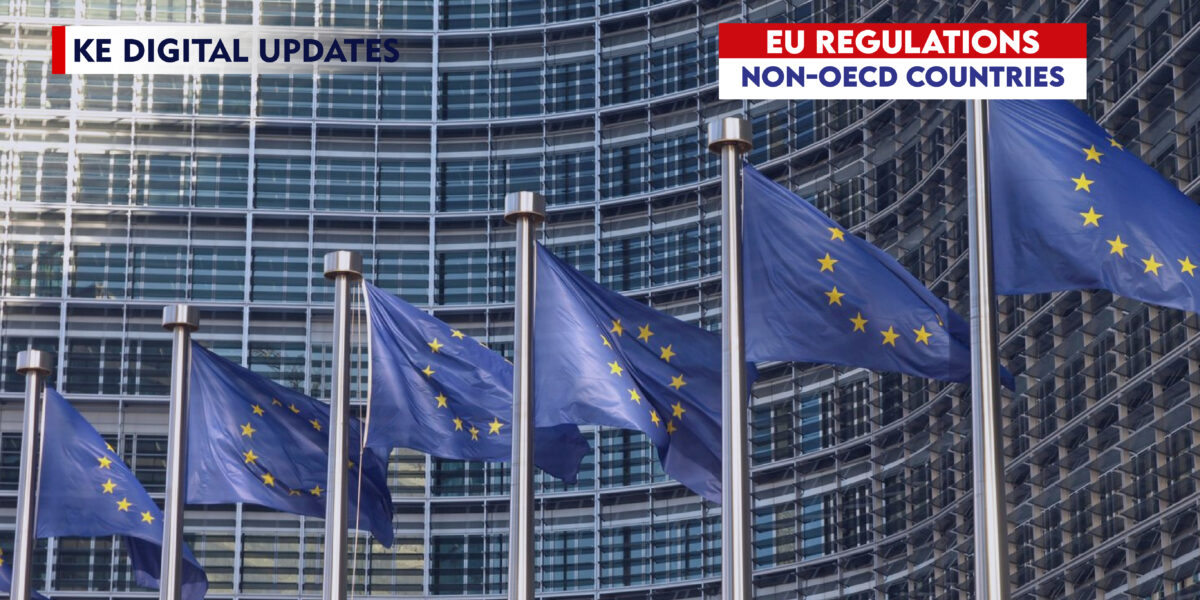In a few years, hazardous waste from the EU has been exported and dumped into developing countries; these countries are not using better techniques for recycling which cause health problems, damage to crops, air pollution, and water contamination. These rising problems demand to control of carbon emissions and landfills. EU’s Industrial Emissions Directive has successfully controlled the 50% emission of heavy metals in water. Fifty thousand installations are still responsible for 40% of Green House Gas (GHG) emissions.
European Union has implemented the European Green Deal, Circular Economy Action Plan, and Zero Pollution Plan to protect the environment. It has laws to restrict the transborder movement of toxic wastes and their disposal. EU prohibited the shipments of hazardous waste to NON-OECD countries under the “EU Waste Shipment Law” the waste are end of life vehicles, tires, and e-waste. OECD countries need prior notification, including written approval of dispatch, transit, and destination authorities.
European Commission received replies to its request from Pakistan, India, Bangladesh, China, Brazil, Bostawa, Chile, Costa Rica, Cuba, Egypt, Georgia, Egypt, Paraguay, Peru, Argentina, Andorra, Lebanon, Philippines, SriLanka, Vietnam, Indonesia, Croatia, Kenya, Oman, Malaysia, Israel, Malawi and Moldova in 2007. Green Deal helps to boost investment in industry’s circular economy for the recycling of existing material and collaboration between de-carbonization & neutralization. EU established “An Innovation Centre for Industrial Transformation and Emission (INCITE), which help to improve research and better innovations to achieve the target of a net zero pollution plan by 2050. It promotes the installation of better techniques to control carbon emissions. “EU Industrial Emissions Portal” provides access to data regarding permits and transparency. After the approval of the proposal by the European Parliament and the Council, eighteen member countries will have national legislation regarding the proposal.
Basel convention has restricted waste usage through hazardous techniques in Europe, which increased the low-cost methods in Eastern Europe and developing countries, increasing the carbon emissions. Basel convention requires better ship breaking yards, better motor vehicles, and scrap recycling techniques.
Hong Kong Convention was signed on 15 May 2009 to address the ship recycling issues, which required an initial survey about environmentally hazardous material (hydrocarbons, asbestos, heavy metal, and hydrocarbons), the life of the ship, and a survey about recycling methods. The convention aimed to control the risks to human health and environmental protection; unfortunately could not be implemented.
Europe wants its environment clean and free from health hazards; it made regulations for the exports of waste/ recyclable material to non-OECD countries. They have to be responsible for the imports, recovery, and recycling.
These restrictions will increase the use of waste in the EU and helps to lower carbon footprints compared to the use of primary raw materials like iron ore, coal, bauxite, etc.
EU will issue a list of authorized countries importing waste and will suspend exports if it finds an issue handling the waste.
EU exporting companies will conduct an independent audit that facilities use environmentally friendly waste methods. EU Waste Shipment Enforcement Group would be established to control illegal waste shipments. It also addresses the export of listed green waste, which is not harmful, but the treatment methods are hazardous.
Japan has scrapped management policies that match the criteria of the EU. Japan can import from the EU without any restrictions. It is an opportunity for Japanese exporters in Asia’s market to increase scrap supply to avail the best profit margins.
These restrictions will decrease exports to developing countries, create a recycling shortage, and increase steel scrap prices, resulting in higher production costs. Developing countries like Pakistan are already facing rising energy costs and other production-related costs due to weak infrastructure. They should have better recovery and recycling methods which are responsible for less emission of hazardous otherwise; steel scrap shortage will cause adversely affect the steel industry. On the other hand, OECD countries are implementing better techniques to recycle waste without leaving many footprints. Non-OECD countries need more investment in the research and development of better production, recovery, and recycling techniques to cope with the regulations of the EU.


